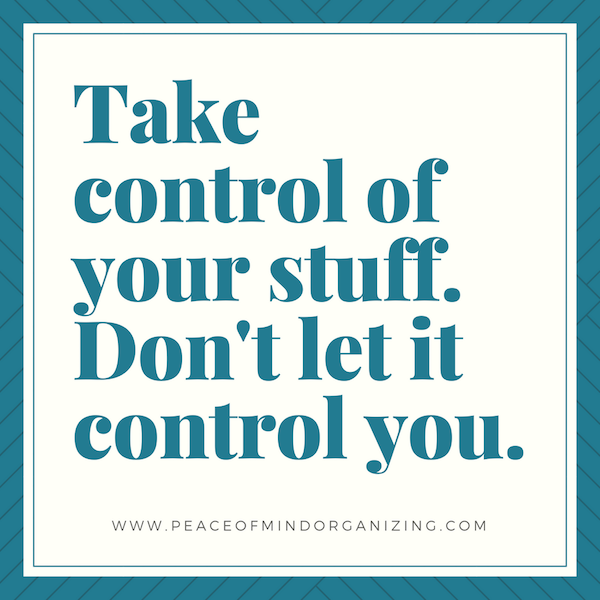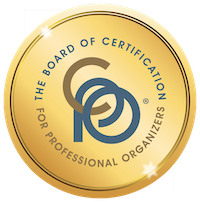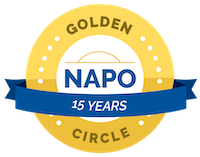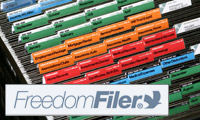Is the iPhone X worth the high price?
I bought my first iPhone in 2012 (it was a 4S) and have upgraded every two years. Three weeks ago, I took the plunge and upgraded from my iPhone 6s to the iPhone X. I hesitated for three reasons: (1) the 6s was working quite well; (2) the X has a learning curve since the home button was removed; and (3) it costs $1149 for the 256 GB phone, which I wanted.
So is the iPhone X worth all that money? My answer is a resounding yes!
I selected the Apple Upgrade plan, which means that I’m paying some $55 a month over two years, after which the phone is mine. Or I can turn the phone in any time after one year and upgrade to a new phone without having to pay the balance. The monthly payment includes Apple Care.
Here’s a picture of my phone’s lock screen:

That's my standard poodle, Bix, on the right with his BFF, Finn.
The main reason I was drawn to the iPhone X is that its screen covers the entire front of the phone, which means that I get a much larger screen without a significantly larger phone. That’s great for me because my aging eyes were having trouble reading the iPhone 6s. I went from a phone that is 5.44” tall x 2.64” wide with a 4.7” display to a phone that is 5.65” × 2.79” (just a little bit larger) with a 5.8” display. That extra 1.2 inches makes a big difference.
I’m happy to report that I did not experience a learning curve. Swiping up, rather than pressing the home button, has come very naturally to me. In fact, I find the iPhone X easier and more enjoyable to use than my others, all of which I loved.
And I’m also enamored of the Face ID. Rather than using my fingerprint or entering a code to open my phone, I just look at it. I’m amazed how well that works. And it works every time (unlike my fingerprint on my 6s). I haven’t had any problems with Face ID when I use Apple Pay, though I’d been warned that I might.
I’m not a big photographer, but I use my phone’s camera a whole lot. (Pictures of Bix are liberally sprinkled throughout my photo stream.) The iPhone X’s camera is amazing. I haven’t even yet availed myself of all the features and I can still appreciate how good it is.
Since I have Apple AirPods (which I also love), I haven’t missed the absence of the ear phone jack. I was happy the new phone came with an adaptor so I can use my Square card reader, which attaches to the phone jack.
I immediately purchased a new Loopy case when I bought the phone, so I’m not worried about dropping my expensive new device.
And, finally, my iPhone X is much faster than my iPhone 6s was. I’m one happy camper. I’m fortunate to be able to afford the $55 a month charge and I feel the phone is worth it.
Stop the Clutter! cards
I’m always trying to figure out ways to make organizing/decluttering/task management fun. You may remember To-Do List Bingo for example.
So I was intrigued when I learned that a colleague in Columbus, Ohio, Karen Kruzan of K-Squared Organizing, had created a deck of cards to help people declutter and organize. They’re called Stop the Clutter! cards. So of course, I bought a deck to try them out.
I took this picture:

A representative decluttering card
The deck of 56 tarot-sized action cards is split into four categories:
- 14 blue decluttering cards
- 12 red organizing activity cards
- 16 green self-awareness activity cards
- 10 yellow self-care cards
Each card has an activity of some sort on it. The idea is that you shuffle the deck and then each day (or perhaps less often if you’re really busy) you draw a card and complete the activity. The cards offer advice along with the activities.
I think this is just brilliant! For someone who needs help figuring out where to get started, it could be so helpful. Not knowing what you’re going to be working on makes it fun. I think it’s great that the activities are quick but together they add up to a huge amount of progress. And, of course, I absolutely love that self-care activities are part of the deck.
Karen, who is also psychotherapist as well as an organizer, has clearly put a whole lot of thought into the activities in the deck. I heartily encourage you to check them out!
New podcast! Getting to Good Enough

I am ridiculously excited to announce the launch of the new podcast Getting to Good Enough, hosted by me and pal and life coach Shannon Wilkinson.
It feels really good to be collaborating with Shannon again. We have co-presented in-person workshops on more than one occasion. Wepartnered on Declutter Happy Hour, back in the day, along with Quick Clutter Fix and Why Resolutions Don’t Work (and How to Get What You Want Anyway). All those projects were fun, but they’re not for sale anymore.
This podcast was Shannon’s idea and I jumped at the chance to work with her again. It is designed to help you overcome perfectionism so you can live the life you want to lead. We come at it from different perspectives: I’m lucky enough naturally good at good enough. As you know if you’ve been reading my blog for awhile, my personal mantra is let it be easy. Shannon is a born perfectionist, but she’s actively working toward being a “good enough” person. Both of us see in our clients out perfectionism can get in their way.
In the podcast we address different strategies for getting past perfectionism. We each put together a list of podcast topics and on the first pass had more than 50. So clearly we have a lot to say. Shannon and I love talking about this stuff with one another and we have a whole lot of fun doing it. We hope it’s fun to listen to too!
We launched the podcast on June 15 with the first three episodes and we intend to publish a new one each week. You can subscribe at iTunes or listen on the Getting to Good Enough website.
We hope you’ll give it a listen, feel free to make comments, and help us spread the word!
Happy birthday to my genealogy blog!

Today marks the sixth blogiversary of my genealogy blog, Organize Your Family History. I started the blog on June 14, 2012 as a way to marry my love of organizing with my passion for genealogy. By then, I’d been blogging here for six years so I knew the joys of blogging and I knew I had it in me.
It’s turned into a really fun adventure. I’ve grown so much as a genealogist in that time. (I blogged about that today, in fact.) The blog has brought me lots of opportunities to speak and to write and to work with Family Tree University hosting a couple of workshops.
If you have an interest in genealogy, I urge you to check it out. While the focus is on organizing, I talk a lot about research techniques and resources as well. If you want to take it to the next level, I offer a few Orderly Roots Guides (downloadable pdfs) and I also offer genealogy organizing services.
Genealogy research brings me so much, like the thrill of the hunt, the joy of discovery, and connection with families. (Plus the opportunity to meet newly discovered family members!) It’s no wonder it’s one of the most popular hobbies in the country.
I’m proud of Organize Your Family History and wanted to celebrate this milestone here. I hope you’ll check it out!
Worth repeating: Avoiding overpacking
This week, I helped a client pack for her fabulous European vacation. As I explained my packing method to her, I remembered that I had written a blog post about it years ago. Now seems like a good time to post it again!
I’m leaving for a weekend trip to attend a family wedding. As I think about packing, I thought I’d share my method for ensuring I don’t overpack.
I’ve been doing this for years — decades, really. I think I invented this system. And I’m happy to share it.
Here’s what I do:
- I think about the clothes I’d like to take on the trip and make a list. It usually includes the clothes I’m particularly fond of wearing these days, or ones I feel really good in.
- I number each item in the list
I did this last night for my trip. And I took a picture. (The backs of envelopes are good for this.)

- I make a list of the days I’ll be there. Since there’s usually a change of clothes, I’ll have columns for AM and PM. (If there were going to more than one change of clothes in a day, I’d increase the number of columns.)
- I put together outfits for each day, using the numbers next to each item on the packing list.
- I go through the numbers (looking for each number, in order) and make sure that each number is represented. If there’s no number 5, for instance, on the outfit list, I scratch item number five off my packing list.
Here’s my outfit list for this trip:

There was no item number five!
A nice bonus is that if I want, I can bring along the lists and then I don’t have to think about what I’m going to wear each day.
I don’t list undergarments (unless there’s something special) or jewelry. I certainly could list jewelry, but I don’t have that much and I just sort of eyeball it.
I hope you find it helpful. I’ve made my packing list but haven’t packed for my trip yet — we’re leaving after I get home from a client this afternoon. It’s so nice to have the list; packing will be a snap!
Don't let your stuff control you
Last month I spent some time in some pretty cluttered situations with clients who had a very difficult time letting go of excess. This isn’t the norm for me; most of my clients are ready to let go by the time I work with them.
As I saw clients struggling to live comfortably because of an overabundance of stuff, I was once again struck by the power that stuff can hold over us and, conversely, the freedom that comes with owning less.

These are words I try to live by.
Worth repeating: Making a move easy(er)
Spring and summer are big times for moving. If you’re planning to move any time soon, here are some ideas I wrote down a few years ago to make the move easier for you. (One way you can do that is to bring in an Operation Relocation team.) If you have a move coming up, please read this!

A supply drawer we created while unpacking a client
Moving is stressful. There’s pretty much no way around it. Even if an employer is paying for the move and you have the movers pack you, there are a lot of details with which to contend and it’s a hassle. Working with a professional organizer can help, but even so, the process is stressful.
I’ve recently helped several clients settle into their new homes by bringing in teams to unpack and organize their belongings. All of them were packed by the movers. Observing how the unpacking and organizing process went, I’ve identified a few ways to make the move easier:
- Start early. It’s easy to procrastinate on decluttering, packing, and making logistical arrangements. But the more time you can give yourself, the less stressful the process will be—and the more likely you are to avoid last-minute crises.
- Declutter before the move. If an employer is paying for the move, you might be inclined to delay decisions about letting go of stuff until after you see how it might fit into your new home. But believe me, by the time you’re in the unpacking phase of the move you’re going to be tired. And the fewer decisions you have to make when you unpack, the happier you’ll be. Less stuff = easier move.
- Go through the unopened boxes from the last move. If you’ve been in your home awhile and there are still unopened boxes in your storage area, don’t just move them. Open up those boxes and find out whether the items inside merit the space you’re giving them and the effort and money involved in moving them.
- Categorize before packing. If each box contains a category of items, unpacking is much more streamlined, and less frustrating. It can also make it easier to find an individual item before you’ve finished unpacking. If you don’t organize before you pack, you’ll end up with a hodge podge of items in each box, which can create headaches when you’re unpacking.
- Mark the boxes for the destination room. If the layout of your new home is different from the old one, try to mark the boxes for delivery to the appropriate room in the new home, rather than the room it came from. That way you’ll be able to stay in the room that you’re unpacking.
- Try to unpack as much as possible as soon as you move in. I’m typically a big fan of little and often, and if you need to break down unpacking into tiny chunks in order to get it done on your own, so be it. But if you can power through the unpacking process so that you get rid of boxes and get settled, the transition will be easier.
- Unpack the kitchen first. I think it’s hard to get a semblance of normalcy until your kitchen is unpacked. When you can make coffee in the morning and fix yourself a snack, life is better. Eating off of real plates rather than paper plates will make you feel like you’re home.
- Let go of perfection. Don’t get bogged down in the unpacking process trying to decide the perfect place to store items. You can always improve on it later. Just choose a location and see how it works.
- Enlist help. Unpacking a home on your own can be overwhelming. Enlist the help of friends, family or a professional organizer (or organizing team). In the last two unpacking jobs we did, we were able to get the entire homes unpacked in two days. It felt like a miraculous transformation—from a sea of boxes to a comfy home in two days. The clients still had tweaking to do, certainly, but they were able to get in with their daily routines.
Yes, moving is stressful. But it doesn’t have to be a nightmare. With a little planning and forethought, you can make it relatively easy.
Links
- Institute for Challenging Disorganization
- Peace of Mind Spending
- National Association of Productivity and Organizing Professionals
- Shannon Wilkinson, life coach
- Organize Your Family History
- NAPO St. Louis
- Are you interested in becoming a professional organizer?
- Getting to Good Enough podcast
- Ravelry








